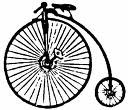This is a guest post; the first in a series on frugal cooking, from Jian.
Since Penny's somehow formed the opinion that I'm a fairly frugal cook, and good at using up leftovers and ingredients, she's asked me to write something about buying food economically and cooking without waste. Very topical these days. Few cookbooks seem to go out without at least a small section on how to stock your larder with most bang for your buck, and avoiding throwing away food.
I would say we throw very little food away; mostly, the waste we generate from food shopping is packaging, which is a bit of a pain. I think that in order to cook economically, one needs to ask and answer some basic questions about priorities. The main questions one needs to answer seem to be:
1)What do you most often cook, what do you most like to eat, and what do you most like to cook? The three categories do not necessarily overlap much, and it's therefore best to try and make them so as much as you can. Once you know what you will cook, you can be prepared with the right sort of ingredients, and avoid waste. It's a pain to buy a nice ingredient (like bok choy, or halloumi, or venison) that you like the look of, and is in season or on special offer, but to have to throw it away because you didn't have a plan for it.
2)How do you plan your cooking? Are you the sort of person that likes to plan a whole week's menu in advance, with cascading recipes (e.g. spaghetti bolognese to chili con carne and meatloaf, using a tomato-based mince recipe as the base), or do you prefer to improvise? This is, I suspect, as much a matter of personality as anything else, though of course you may be a very well-organised person who's rather chaotic about their cooking, or vice versa. Also, do you follow recipes closely, or do you prefer to make it up more as you go along?
3)Who do you cook for? Cooking for yourself can be wasteful, sadly, since proper cooking for one can be quite uneconomical in ingredients. Cooking for several people will raise the issue of differing preferences, and if some of them are children or eat at different times, things get progressively harder, more expensive, and more wasteful. Penny and I are in the happy position of only cooking for each other, which helps tremendously, but that won't be of much use to you.
4)What cooking resources do you have? Just a hob, or a grill as well, or an oven too? Do you have a kettle or a toaster? How about storage – a fridge, a larder, a freezer, even a chest freezer? How about less common equipment such as a crock pot, deep-fat frier, blender, kitchen mixer, microwave, sandwich-maker, or low-fat grill? What utensils do you have? Finally, what ingredients are available to you at your local shops: what's at your supermarket, do you go to farmer's markets, delicatessens, or ethnic food shops?
That all said, it's clearly going to be very difficult to give any useful advice that's generally applicable to everyone who'd like to cook more economically. I will, however, give it my best shot in future posts.
Join Us for Move 26 in ’26
1 month ago





No comments:
Post a Comment